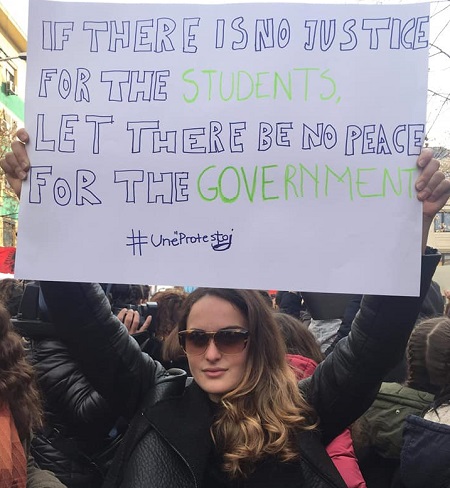The Institute for Critique and Social Emancipation Tirana (ICSE), a partner organisation of transform! europe, is hosting a lecture followed by a discussion on retrospective reflections on student movements from the late 1960s to today.
In a world which boasts a history as turbulent as the one we are facing, the fate of social movements seems to be almost pre-written, or in a darker political dimension even over-determined. Yet, throughout this chain of progressive outburst, we have witnessed a myriad of organizations and political action, which in return creates a concrete threat to the established order. But what happens the day after? The workers return to work, the students return to their studies and the reality seems unbreakable once again.
The acclaimed Slovenian philosopher Slavoj Žižek in typical fashion would describe this phenomenon as “a one night stand”. Therefore, in his own words, “I refuse a romantic and sexy revolution, give me a boring one!”.
The youth, and more specifically students, are always the driving force when involved in social movements outside of political parties and unions. Herbert Marcuse would describe it as a biological necessity, following the inquiry of Freud upon the Myth of Oedipus, while Alain Badiou would call it a pre-political moment, yet a bright one. Other modern Marxists would even proclaim students as the new proletariat. What is the rationale behind such a claim, if we take it for granted?
From May 68 up to Occupy Wall Street, they have been the most determined subject in seeking change, although not always in a homogenous capacity. Students are looked upon as even more marginalized than workers, taking in consideration that after finishing their studies, they have no practical skills which could be valuable on a work place; and yet no one will hire them in relation to their degree of studies. From a social scale point of view, there is no place and no future for the greater part of the students in our society, and therefore their desire for change is purely material. Ideologically, this makes them more radical. Students don’t want a simple change, but a completely different alternative.
A lecture by: Frenklin Elini
Interpretation: Albanian
Organised by: Instituti për Kritikë dhe Emancipim Shoqëror / Institute for Critique and Social Emancipation in co-operation with transform! europe
17 Nov 2022, 18:00 (CET)
“Logu i Shkëndijes” social center
Tirana, Albania
